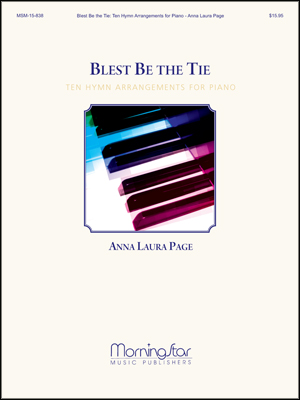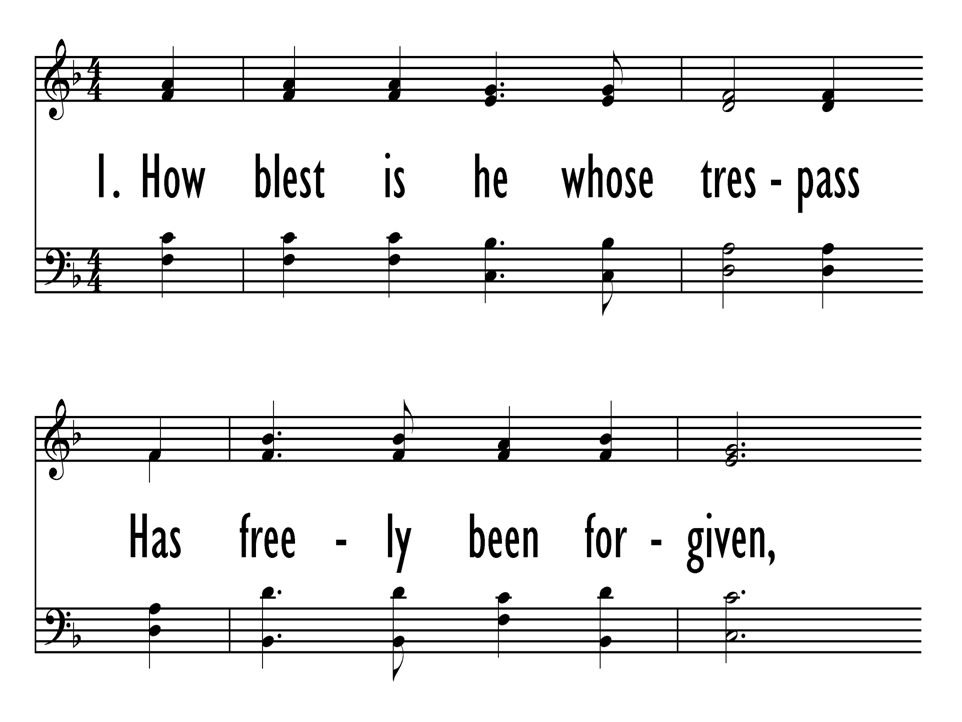Psalm 32 is traditionally considered a penitential psalm (along with 6, 38, 51,102, 130, and 143). In the sequence of spiritual experience it follows the situation depicted in Psalm 51, the great plea for forgiveness. That psalm's traditional association with David's sin against Uriah, together with Psalm 32's reference to delayed confession, has suggested a historical link between the two. The psalm's thematic movement is noteworthy and is well represented in the versification, which is slightly altered from that of the 1912 Psalter.
The psalm begins with a testimony to the blessedness of those forgiven by God (st. 1). Retracing the spiritual movement from stubbornly denying sin to experiencing the joy of God's forgiveness (st. 2), the psalm exhorts all the godly to faithfully rely on God and reaffirms the LORD as refuge and hiding place (st. 3). Next God speaks, instructing the saints in godly obedience (st. 4). The psalm then contrasts the lot of the wicked with that of those who trust in God, and it closes with a call to the righteous to rejoice in God for his unfailing mercies (st. 5).
A testimony to the blessedness of the forgiven and an exhortation to the trust, obedience, and joyful worship that should mark their lives.
Scripture References:
st. 1 =vv. 1-2
st. 2 =vv. 3-5
st. 3 = vv. 6-7
st. 4 = vv. 8-9
st. 5 =vv. 10-11
Psalm 32 is traditionally considered a penitential psalm (along with 6, 38, 51,102, 130, and 143). In the sequence of spiritual experience it follows the situation depicted in Psalm 51, the great plea for forgiveness. That psalm's traditional association with David's sin against Uriah, together with Psalm 32's reference to delayed confession, has suggested a historical link between the two. The psalm's thematic movement is noteworthy and is well represented in the versification, which is slightly altered from that of the 1912 Psalter.
The psalm begins with a testimony to the blessedness of those forgiven by God (st. 1). Retracing the spiritual movement from stubbornly denying sin to experiencing the joy of God's forgiveness (st. 2), the psalm exhorts all the godly to faithfully rely on God and reaffirms the LORD as refuge and hiding place (st. 3). Next God speaks, instructing the saints in godly obedience (st. 4). The psalm then contrasts the lot of the wicked with that of those who trust in God, and it closes with a call to the righteous to rejoice in God for his unfailing mercies (st. 5).
Liturgical Use
Though considered penitential, this psalm is properly used not so much in confession of sin as in thanksgiving for God's forgiveness of our sin. It is a joyful psalm! Within that context, the psalm could also serve as a call to confession (st. 1-3) and instruction for godly living following the assurance of pardon (st. 4-5).
--Psalter Hymnal Handbook


 My Starred Hymns
My Starred Hymns





